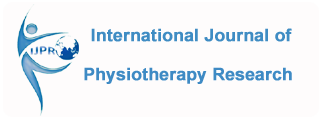IJPR.2017.262
Type of Article: Original Research
Volume 6; Issue 1 (February 2018)
Page No.: 2606-2612
DOI: https://dx.doi.org/10.16965/ijpr.2017.262
EFFECTS OF ABDOMINAL EXERCISE ON RESPIRATORY MUSCLES AND PULMONARY FUNCTION IN HEALTHY MALES
Yii-Jiun Shao1, Mei-Ling Chan 2, Yen-Huey Chen *3,4,5.
1 Department of Rehabilitation, Shin-Kong Wu Ho-Su memorial hospital, Taipei, Taiwan.
2 Chung Yuan Christian University, Taoyuan, Taiwan.
3 Department of Respiratory Therapy, College of Medicine, Chang Gung University, Tao-Yuan, Taiwan.
4 Department of Pulmonary and Critical Care Medicine, Chang Gung Memorial Hospital, Taoyuan, Taiwan.
5 Department of Respiratory Care, Chang Gung University of Science and Technology, Taiwan.
Corresponding author: Yen-Huey Chen, Department of Respiratory Therapy, College of Medicine, Chang Gung University, Tao-Yuan, Taiwan. 259 Wen-Hwa 1st Rd. Kwei-Shan Tao-Yuan, Taiwan. Tel: 886-3-2118800*5233 Fax: 886*3-2118800*5252 E-Mail: yhchen@mail.cgu.edu.tw
ABSTRACT
Background: Abdominal muscle is the major expiratory muscle and play an important role in ventilation. The purpose of this study is to examine the effects of abdominal muscle training on pulmonary function. Subjects were randomly assigned to low (n=7), moderate (n=7), and high intensity (n=7) groups and performed sit-up exercises at for 6 weeks. The intensity was set at 40% (low), and 80% (high) of the numbers of sit-ups they performed during 1-min sit-up test. Baseline and post-training measurements included pulmonary function, maximal inspiratory (PImax) and expiratory pressure (PEmax), and 1-minute sit-up test.
Results: No differences were found in post-training pulmonary function among the 3 groups. However, significant increase in maximal voluntary ventilation after training was found in low (26. 5 vs 31.4 L, p<0.05), moderate (29.9vs 45.0 L, p<0.05), and high intensity group (27.2 vs 42.2 L, p<0.05). Subjects in the LOW group demonstrated a significantly increase in PEmax (88.0 (66.0-96.0) vs. 104.0 (91.0-123.0) cmH2O, p<0.05)
Conclusions: The abdominal muscle training may enhance the ability of maximal ventilation through increasing expiratory muscle strength.
Key words: abdominal muscle, respiratory muscle training, pulmonary function, sit-up.
REFERENCES
- De Troyer A, Estenne M, Ninane V, Van Gansbeke D, Gorini M. Transversus abdominis muscle function in humans. Journal of applied physiology (Bethesda, Md : 1985). 1990;68(3):1010-6.
- Taylor BJ, How SC, Romer LM. Exercise-induced abdominal muscle fatigue in healthy humans. Journal of applied physiology (Bethesda, Md : 1985). 2006;100(5):1554-62.
- Esposito F, Limonta E, Alberti G, Veicsteinas A, Ferretti G. Effect of respiratory muscle training on maximum aerobic power in normoxia and hypoxia. Respiratory physiology & neurobiology. 2010;170(3):268-72.
- Forbes S, Game A, Syrotuik D, Jones R, Bell GJ. The effect of inspiratory and expiratory respiratory muscle training in rowers. Research in sports medicine (Print). 2011;19(4):217-30.
- Sutbeyaz ST, Koseoglu F, Inan L, Coskun O. Respiratory muscle training improves cardiopulmonary function and exercise tolerance in subjects with subacute stroke: a randomized controlled trial. Clinical rehabilitation. 2010;24(3):240-50.
- Johnson BD, Saupe KW, Dempsey JA. Mechanical constraints on exercise hyperpnea in endurance athletes. Journal of applied physiology (Bethesda, Md : 1985). 1992;73(3):874-86.
- Kyroussis D, Mills GH, Polkey MI, Hamnegard CH, Wragg S, Road J, et al. Effect of maximum ventilation on abdominal muscle relaxation rate. Thorax. 1996;51(5):510-5.
- Roth EJ, Stenson KW, Powley S, Oken J, Primack S, Nussbaum SB, et al. Expiratory muscle training in spinal cord injury: a randomized controlled trial. Archives of physical medicine and rehabilitation. 2010;91(6):857-61.
- Childs JD, Teyhen DS, Casey PR, McCoy-Singh KA, Feldtmann AW, Wright AC, et al. Effects of traditional sit-up training versus core stabilization exercises on short-term musculoskeletal injuries in US Army soldiers: a cluster randomized trial. Physical therapy. 2010;90(10):1404-12.
- DePalo VA, Parker AL, Al-Bilbeisi F, McCool FD. Respiratory muscle strength training with nonrespiratory maneuvers. Journal of applied physiology (Bethesda, Md : 1985). 2004;96(2):731-4.
- Sperlich B, Fricke H, de Marees M, Linville JW, Mester J. Does respiratory muscle training increase physical performance? Military medicine. 2009;174(9):977-82.
- Teyhen DS, Rieger JL, Westrick RB, Miller AC, Molloy JM, Childs JD. Changes in deep abdominal muscle thickness during common trunk-strengthening exercises using ultrasound imaging. The Journal of orthopaedic and sports physical therapy. 2008;38(10):596-605.
- Childs JD, Teyhen DS, Benedict TM, Morris JB, Fortenberry AD, McQueen RM, et al. Effects of sit-up training versus core stabilization exercises on sit-up performance. Medicine and science in sports and exercise. 2009;41(11):2072-83.
- Beachey W. Respiratory Care Anatomy and Physiology : Foundations for Clinical Practice 2nd: Elsevier Science Health Science; 2007.
- Hopkinson NS, Dayer MJ, Moxham J, Polkey MI. Abdominal muscle fatigue following exercise in chronic obstructive pulmonary disease. Respiratory research. 2010;11:15.
- Summerhill EM, Angov N, Garber C, McCool FD. Respiratory muscle strength in the physically active elderly. Lung. 2007;185(6):315-20.
- Ray AD, Pendergast DR, Lundgren CE. Respiratory muscle training reduces the work of breathing at depth. European journal of applied physiology. 2010;108(4):811-20.
- Edwards AM, Wells C, Butterly R. Concurrent inspiratory muscle and cardiovascular training differentially improves both perceptions of effort and 5000 m running performance compared with cardiovascular training alone. British journal of sports medicine. 2008;42(10):823-7.
- Watsford M, Murphy A. The effects of respiratory-muscle training on exercise in older women. Journal of aging and physical activity. 2008;16(3):245-60.
- Belman MJ, Mittman C. Ventilatory muscle training improves exercise capacity in chronic obstructive pulmonary disease patients. The American review of respiratory disease. 1980;121(2):273-80.
- Enright S, Chatham K, Ionescu AA, Unnithan VB, Shale DJ. Inspiratory muscle training improves lung function and exercise capacity in adults with cystic fibrosis. Chest. 2004;126(2):405-11.
- Powers SK, Criswell D. Adaptive strategies of respiratory muscles in response to endurance exercise. Medicine and science in sports and exercise. 1996;28(9):1115-22.
- Aldrich TK, Karpel JP. Inspiratory muscle resistive training in respiratory failure. The American review of respiratory disease. 1985;131(3):461-2.
- Enright SJ, Unnithan VB. Effect of inspiratory muscle training intensities on pulmonary function and work capacity in people who are healthy: a randomized controlled trial. Physical therapy. 2011;91(6):894-905.








